#43 A Raised Voice, Amplified (London Short Film Festival 2026)
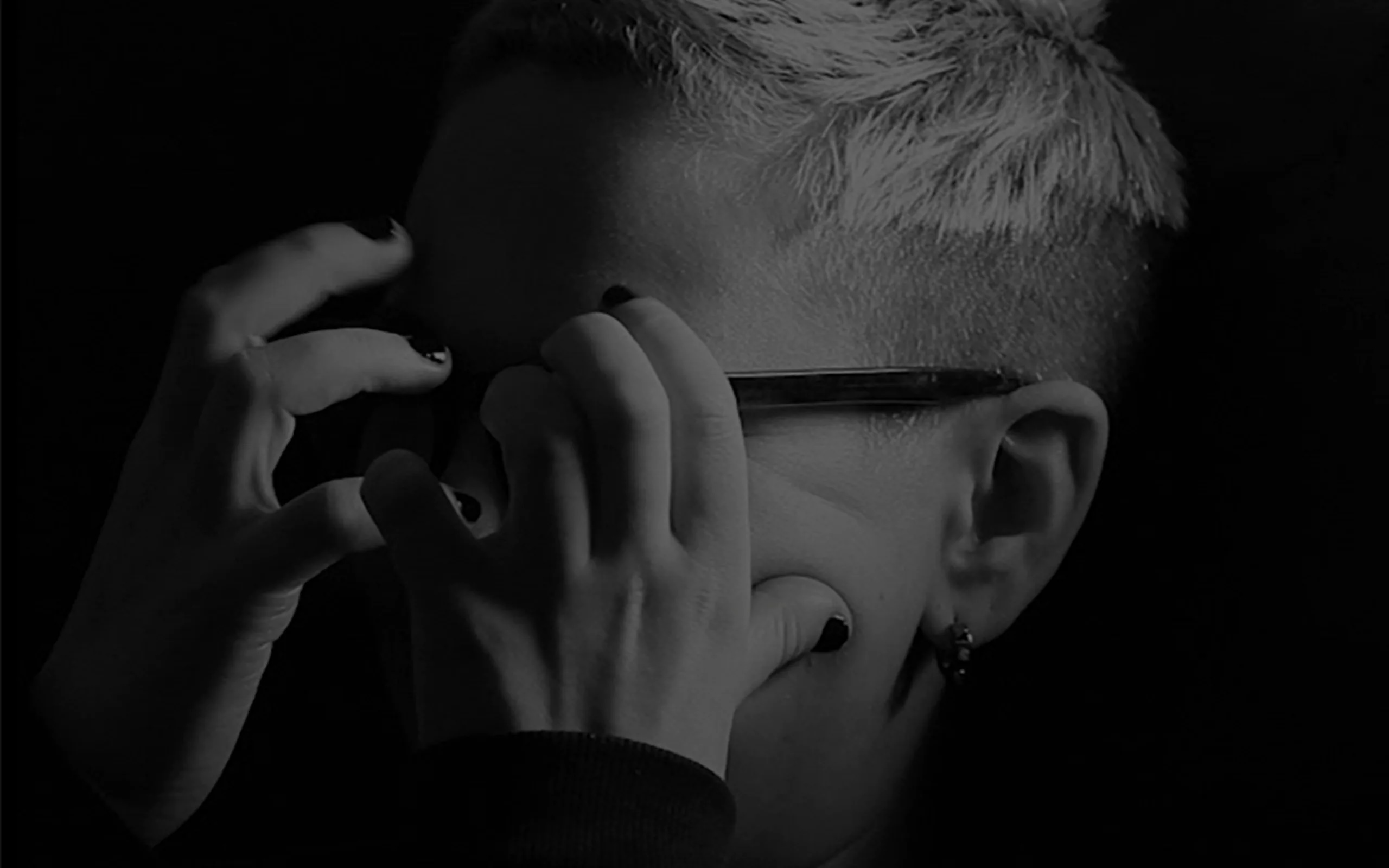
There will be two sittings of this programme as part of the London Short Film Festival 2026:
Sunday 25 January 2026, 4pm @ Garden Cinema
Wednesday 28 January 2026, 7.30pm @ Newington Green Meeting House
Shifting between experimentation and mistranslation, transparency and legibility, these films interrogate modes of speaking and listening. Here, access is a practice: negotiated in dialogue, shaped by communications technology and examined intimately. Crossed wires, soap-opera fragments, military exercises, and captioning labour collide, as lip-reading becomes a mode of resistance and play.
Mascara Film Club will be joined by artists for a post-screening discussion.
All films in this programme include descriptive subtitles. BSL interpretation will be provided for the introduction and panel discussion.
Programme:
Jenny Brady, Receiver, 2022
Jordan Lord, All-around Feel Good, 2024
Lucy Clout, The Extra’s Ever Moving Lips, 2019
Jordan Lord, I can hear my mother’s voice, 2021
Lucy Clout, Nurses II, 2019
Leah Clements, Protection, 2018
Full LSFF programme is available here.
Past
#42 Lawrence Abu Hamdan, Ania Mokrzycka, Thomas Burke
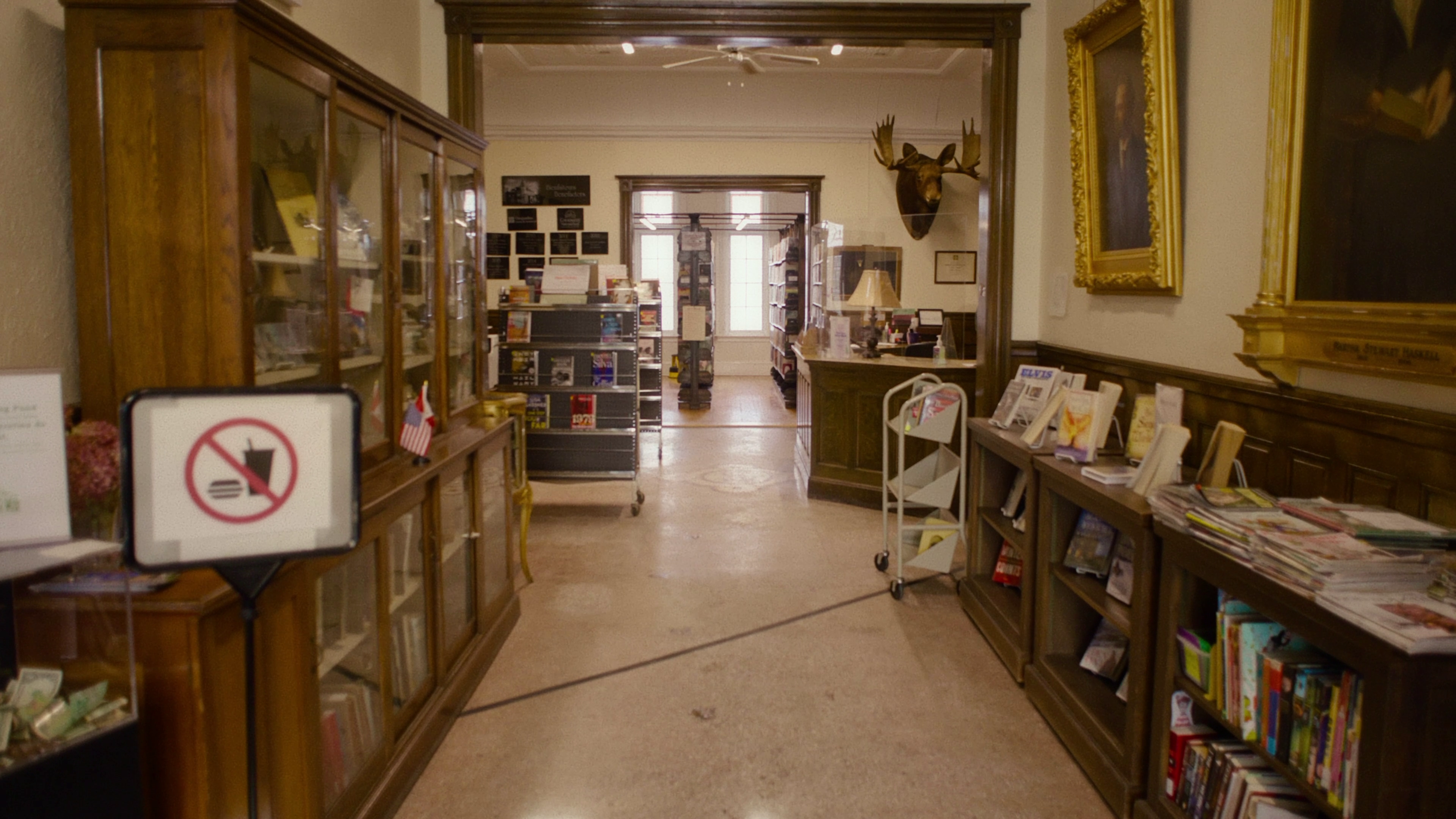
Thursday 30 October 2025, 7pm
Newington Green Meeting House, London, N16 9PR
Tickets
Mascara Film Club presents a group screening exploring the construction of borders, featuring works by Lawrence Abu Hamdan, Ania Mokrzycka, and Thomas Burke. Attending to contested geographies from the US-Canada boundary to Northern Ireland and the borderlands between Poland and Belarus, these films each offer distinct meditations on the various systems – political, legal, and historical – that produce and call into question territorial divisions. Shifting between poetic and investigative narratives, the films explore the complex lived realities and material consequences of man-made lines drawn on maps.
Programme:
Ania Mokrzycka, [paˈlʲit͡sʲ], 2023 (19 mins)
Thomas Burke, Bonfire as Method, 2024 (23 mins)
Lawrence Abu Hamdan, 45th Parallel, 2022 (15 mins)
#41 Alistair Debling, Mille Feuille, Marwan Hamdan, Johan Roelofs, Thyra Dragseth
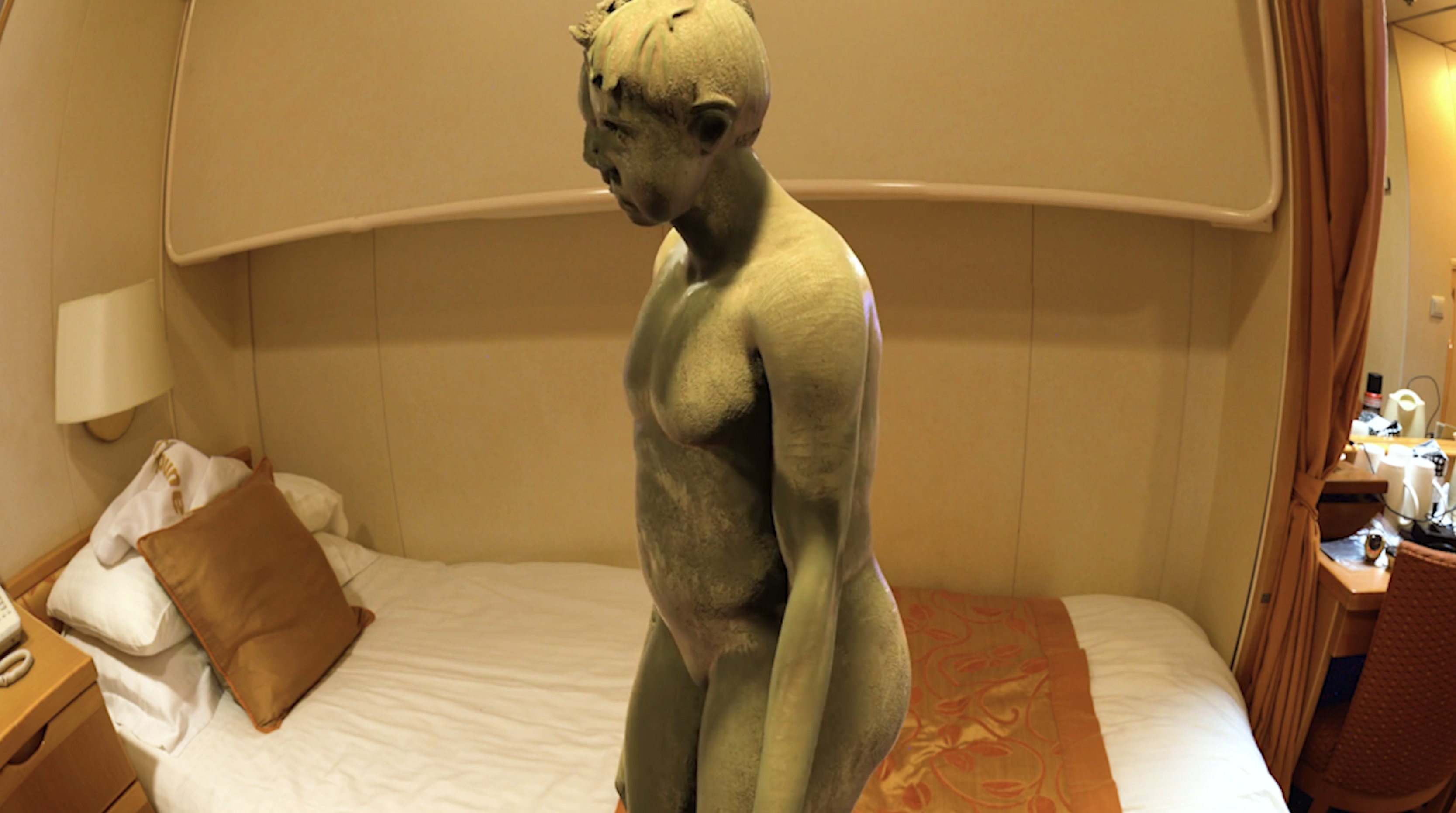
Saturday 27 September, 7.30pm
Studio WG (37 vrouwenkliniek), Wg-Plein, 1054 RS Amsterdam
Mascara 41 presents a programme of short films that take a closer look at boundaries - be they sociological or material. Across these five works contradiction propels unexpected trajectories, exposing the ironies embedded in systems and individuals. Here we find a reluctant football obsession, a bear raiding the fridge, a break-in, an inclusive waste-disposal scheme and a cycle of addiction.
Programme:
Mille Feuille, Kittens Tea Party, 2022 (11 mins)
Johan Roelofs, It Ends Where the Light Ends, 2024 (11 mins)
Marwan Hamdan, Offside, 2015 (20 mins)
Thyra Dragseth, echo looped looped echo, 2025 (25 mins)
Alistair Debling, Half Lives, 2024 (15 mins)
Free Entry
#40
Ree Bradley
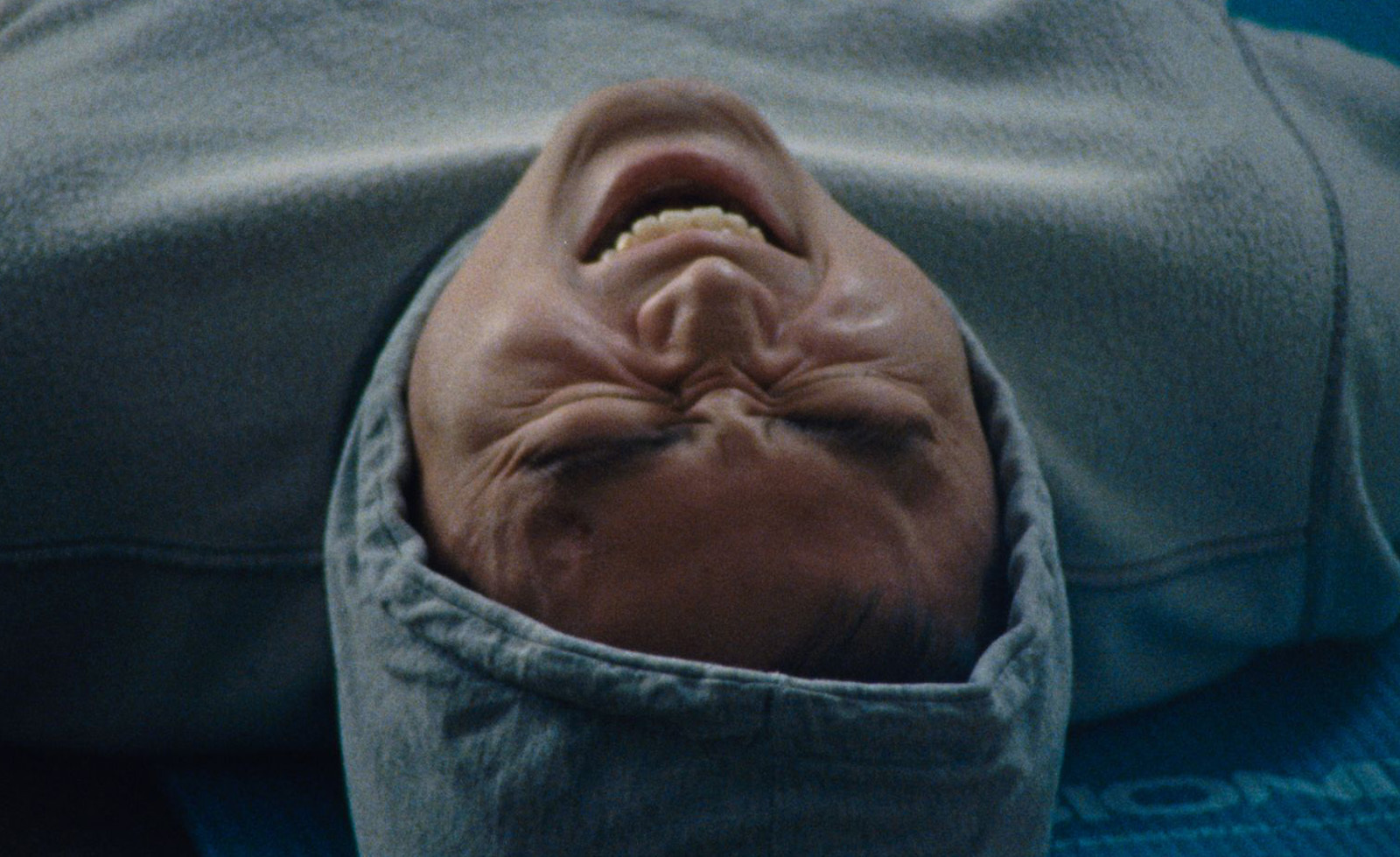
Thursday 18 September, 7pm
Newington Green Meeting House, London, N16 9PR
Tickets
Mascara Film Club presents a double-bill screening of films by artist Ree Bradley, followed by a Q&A discussion with the artist.
Programme:
Ree Bradley, Glossolalia, 2021 (54 mins)
Ree Bradley, The Mind is a Group Muscle, 2025 (24 mins)
Working at the intersection between social practice and documentary filmmaking, both films use the format of participatory workshops to variously explore embodiment, identity, wellbeing, language, and collective experience, drawing on traditions of radical pedagogy and experimental performance.
Set on a single stage in East London, Glossolalia hosts a method acting class, in which actors are trained to access and utilise their unconscious and irrational nature, alongside an Accent Softening Course for Business, whereby international workers learn the ‘Standard English’ accent so as to help further their careers in the UK. Interspersed throughout are a series of scenes, including children learning phonics and a contortionist performing, which further question our conditioned relationships to language, behaviour, and pedagogy.
The Mind is a Group Muscle is an ongoing project that seeks to question socialised masculinities' relationships to mental health through alternative body-based therapies.
For this first iteration, a group (including the artist) explored Rebirthing breathwork, Picture Tapping Technique and Dance Movement Psychotherapy. These practices enable access to unconscious and childlike states buried in the body and breath, offering alternative places to question constructs of masculinity and its relationships to mental health. The project’s title references Yvonne Rainer’s 1968 performance, The Mind is a Muscle, drawing a link between histories of feminist dance and the use of body therapies to deconstruct notions of masculinity.
Aspects of the group's experiences together are shared in this film through 16mm film and therapeutic drawings. The wider social project included a somatic consent session for the group in response to the footage with the ability to veto any images of themselves they didn't wish to be included. Furthermore, each member of the group owns an equal financial share in any funds received from the distribution of the resulting artwork.
#39
Mascara Film Club, NAP+ & LAB111
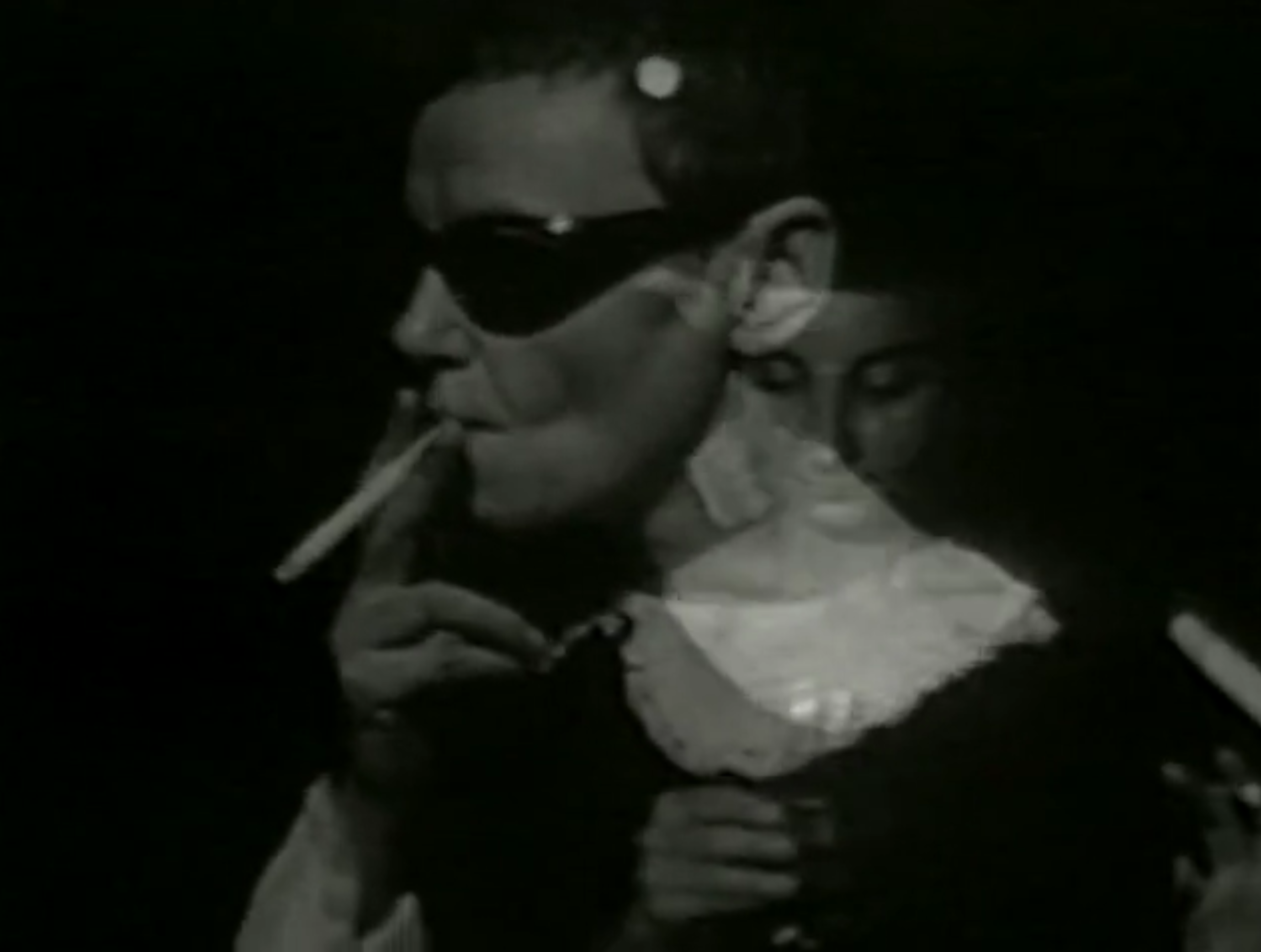
Rafael Sánchez
LAB111, Amsterdam
As part of the NAP+ public programme (initiated by Mabel Woodley), Mascara Film Club are hosting a screening of artists’ films at independent cinema LAB111 in Amsterdam!
For Mascara 39, we present a series of fairytales and fables. Repurposing symbols from folk and childhood stories, exploitation, pain, power and pleasure coalesce into a series of subversive takes and cautionary tales. Here we find princesses, parties, victims, mercenaries, cartoon creatures, ancient monuments and insemination.
Programme:
Rafael Sánchez, Wuthering Heights, 1999 (14 mins)
Lizzy Deacon, Heavenly Beauty, 2025 (13 mins)
Riar Rizaldi, Mirage: Metanoia - Prelude, Episode 1, 2023 (6 mins)
Louis Scantlebury, Seek Beyond, 2025 (4 mins)
Yu Shuk Pui Bobby, He’s Just a Kid!, 2025 (3 mins)
Interval
Dani Leventhal ReStack & Jared Buckhiester, Hard as Opal, 2015 (30 mins)
Tickets here
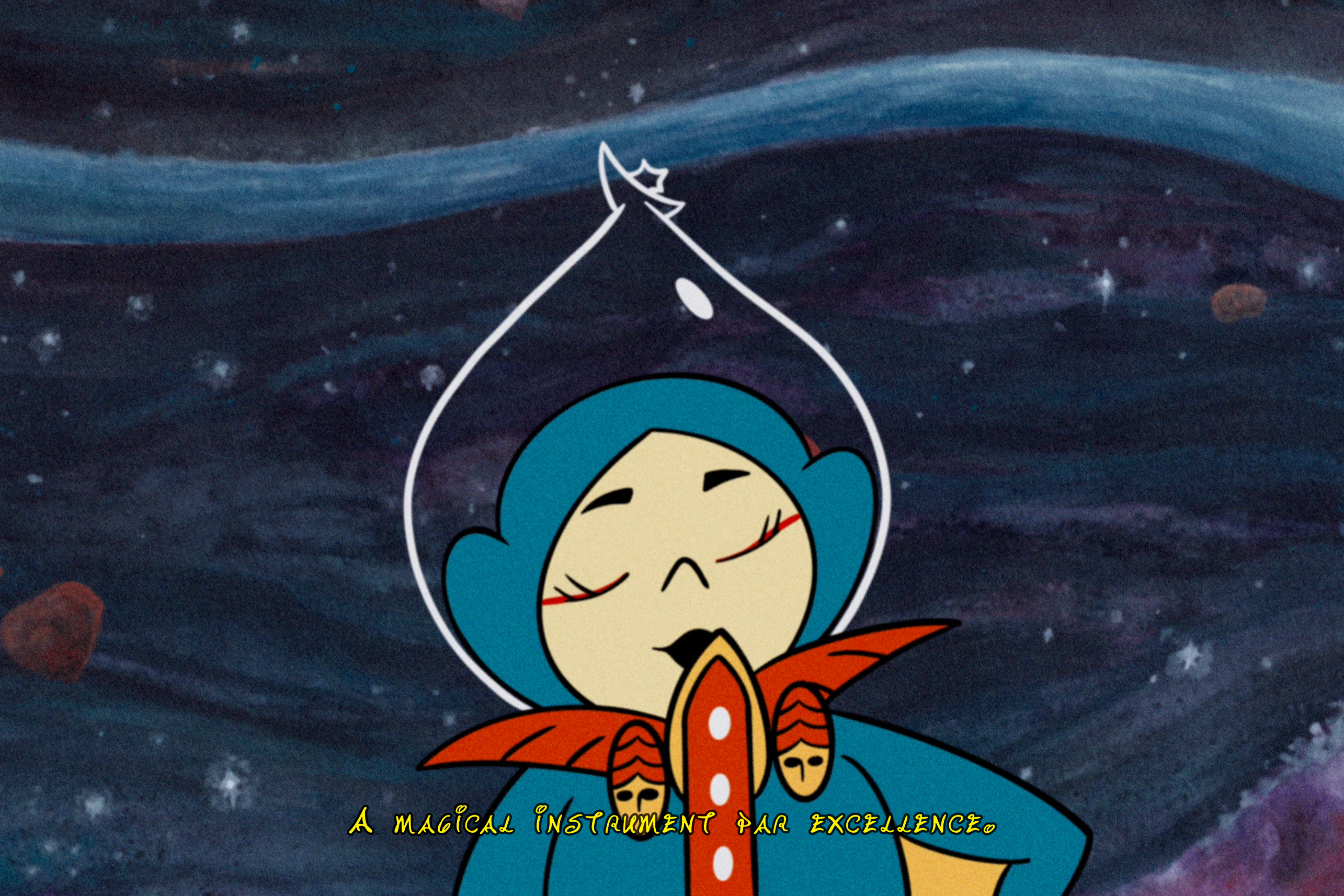
Riar Rizaldi
#38
Braziers International Film Festival
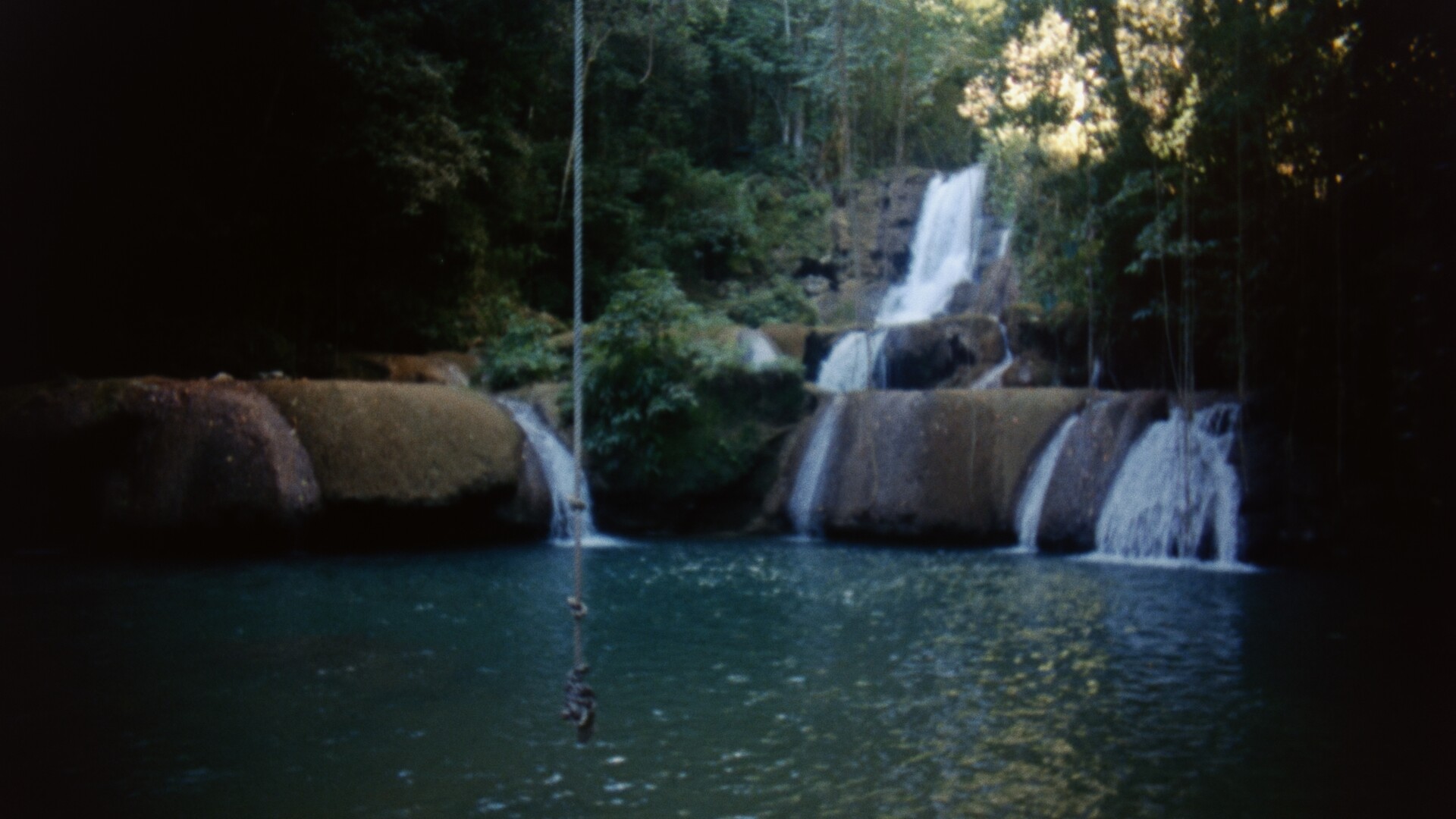
August 30th 2025, 2pm
Braziers Park, Oxfordshire
As guest programmers of 2025’s Braziers International Film Festival, Mascara Film Club present five poetic and layered artists films that speak to the specificities of place - how relationships, both political and personal, are moulded by locality.
Programme:
Hope Pearl Strickland, a river holds a perfect memory, 2024
Dina Mimi, A Thousand Thrashing Arms, 2024
Lim Yen, exits/entrances, 2025
Holly Márie Parnell, Hole in the Stone, 2025
Michael Hanna, Once a Blue Always a Red, 2024
––––––––––––––––––––––––––––––––––––––––––––––––––––––––
#37
Anastazja Naumenko, Cyrus Hung, Hyeonju Lee & Peter McNelis

Sunday 27 July 2025, 7.30pm
Studio WG (37 vrouwenkliniek), Wg-Plein, 1054 RS Amsterdam
Intergenerational relationships, pilgrimages, cleaning rituals and a dodgy TV quiz show: Mascara Film Club presents four artists films that follow attempts at connection, be they thwarted from the start or roads to repair.
Programme:
Hyeonju Lee, A Man Who Cleans a Statue, 2024 (20 mins)
Cyrus Hung, Popo’s Pilgrimage, 2025 (22 mins)
Peter McNelis, Opportunity Knocks, 2025 (3 mins)
Anastazja Naumenko, Can You Hear Me?, 2024 (15 mins)
In Hyeonju Lee’s A Man Who Cleans a Statue, we follow a Japanese man living in Amsterdam, working in a Japanese restaurant and then, in his own time, habitually cleaning a statue. His days have no distinctions between one and the next - Lee’s film sensitively explores the nuances of ordinary life for those working in Amsterdam's service industry. Cyrus Hung’s Popo’s Pilgrimage, meanwhile, offers a portrait of an altogether different ritual. Each year Popo - Hung’s grandmother - makes a yearly pilgrimage to Mount Putuo, a sacred Buddhist site in China. Led valiantly by Popo, moments of both earnest connection and frustrated tensions between grandma and grandson are captured candidly - as are the frictions that occur between self-proclaimed pilgrims and ‘tourists’.
Opportunity Knocks documents an attempt by Peter McNelis to dramatise a young Sir Bobby Charlton’s appearances on Double Your Money, one of the earliest TV gameshows broadcast in the UK. Hosted by Hughie Green, the 1959 audio recording (no film footage survives) is played out in McNelis’ bedroom. Charlton was allowed to forgo the sound-proof booth contestants usually answered their questions inside, due to his claustrophobia from having survived the Munich air disaster a year prior. He went on to win a £1,000 jackpot prize answering questions on contemporary pop music of the time.
Can you Hear Me? screen records Nastia (Anastazja Naumenko) who has lived abroad for years, as she is starting to teach her mom how to use Internet services. Different perceptions of technology become the starting point for exposing intergenerational conflicts and long-forgotten family threads. Can an intimacy regained via zoom be a turning point for the future relationship between two adults?
––––––––––––––––––––––––––––––––––––––––––––––––––––––––
#36
Ree Bradley (Part One)
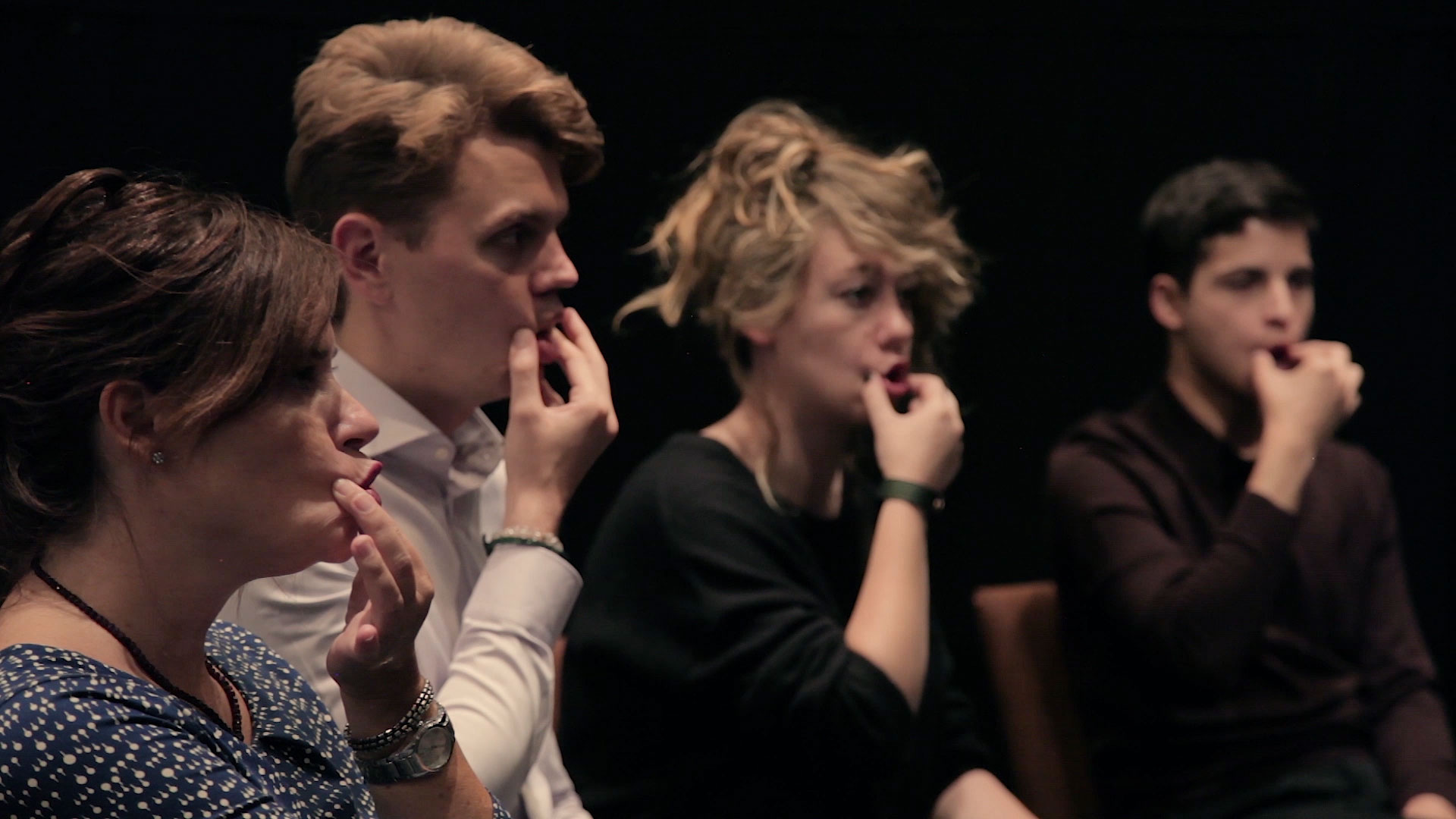
Friday 11 July 2025, 7.30pm
Studio WG (37 vrouwenkliniek), Wg-Plein, 1054 RS Amsterdam
Mascara Film Club presents the first of two screenings featuring works by artist Ree Bradley.
Set on a single stage, Glossolalia hosts a method acting class, in which actors are trained to access and utilise their unconscious and irrational nature, alongside an Accent Softening Course for Business, whereby international workers learn the ‘Standard English’ accent so as to help further their careers in the UK. Interspersed throughout are a series of scenes, including children learning to speak and a contortionist performing, which further question conditioned relationships to language, behaviour, and pedagogy in 21st century Britain.
Screened in a former Women’s Hospital, in which the social history of care and the body comes to the fore, Glossolalia is a film that mediates on how these histories play out in the English language today.
Programme:
Ree Bradley, Glossolalia, 2021 (54 mins)
––––––––––––––––––––––––––––––––––––––––––––––––––––––––––––––––
#35
Beatrice Gibson, Ana Vaz, Basma al-Sharif

Friday 27 June 2025, 8pm
Newington Green Meeting House, London, N16 9PR
Book tickets
Mascara Film Club presents a trio of interrelated films by artists Beatrice Gibson, Ana Vaz, and Basma al-Sharif. Kaleidoscopic, non-linear, and open-ended in form, these works explore feminist approaches to literature, pedagogy, and the lingering spectres of colonialism and fascism.
Orbiting a shared constellation of sensibilities and formal strategies, the films also reflect a real-life network of collaboration and friendship, with both Vaz and al-Sharif appearing as contributors in Gibson’s film. Here, experimental feminist filmmaking becomes both a practice of situatedness and speculation, a sensory and relational encounter loaded with possibility and limitation.
Anchoring the programme, Beatrice Gibson’s Deux Soeurs Qui Ne Sont Pas Soeurs [Two Sisters Who Are Not Sisters] is based on a screenplay by Gertrude Stein written in 1929 as European fascism was building momentum. Set almost a century later in contemporary Paris, Gibson deploys Stein’s script as a talismanic guide through a contemporary moment of comparable social and political unrest. Featuring an ensemble of the artist’s friends and influences – including poet Alice Notley and educator Diocouda Diaoune – the film plays on Stein's interest in autobiography and repetition. An exploration of inheritance, responsibility, ethics and futurity, Deux Soeurs is simultaneously an abstract thriller and a collective portrait. The film is shot on 16mm anamorphic by the artist’s friend and fellow filmmaker Ben Rivers and features an original soundtrack by composer Laurence Crane.
Ana Vaz’s 13 Ways of Looking at a Blackbird takes its title from the poem by Wallace Stevens. Composed of a series of attempts of looking and being looked at, the film originates from a commission from Lisbon's Galerias Municipais and the educational outreach program Descola (Unschool). A kaleidoscope of experiences, questions, and wonders encountered by a couple of high school students, who – over a period of one year and together with filmmaker Ana Vaz – questioned what cinema can be. Here, the camera becomes an instrument of inquiry, a pencil, a song. ‘The film is a song you can see’, wrote one of the students in a collective constellation of phrases and drawings made during one of the workshops. The phrase is a perfect description of a film that explores a nascent ecology of the senses.
Basma al-Sharif’s Deep Sleep was made during a period of temporarily restricted travel to the Gaza Strip, when the artist undertook the study and practice of autohypnosis with the purpose of bi-locating into multiple places at once. Paired with field recordings rendered into a binaural beat soundtrack, Deep Sleep is made up of a year’s worth of bi-location sessions recorded onto Super8mm film. The result is a movement through the ruins of ancient civilizations as embedded in modern civilization-in-ruins. Deep Sleep draws from the historical avant-garde cinema to produce an invitation to move through landscapes and transcend geographical borders in a collective act that discards memory in exchange for a visceral present.
Programme:
Basma al-Sharif, Deep Sleep, 2014 (13 mins)
Ana Vaz, 13 Ways of Looking at a Blackbird, 2020 (31 mins)
Beatrice Gibson, Deux Soeurs Qui Ne Sont Pas Soeurs, 2019 (22 mins)
––––––––––––––––––––––––––––––––––––––––––––––––––––––––––––––––
#34
Bea Macdonald, Rachel McBrinn, Hope Strickland, José Mario Dellow
Saturday 24 May 2025, 8pm
Location: Newington Green Meeting House, London N16 9 PR
Book tickets

Mascara Film Club presents a selection of four artist shorts that use voiceover and conversation to explore themes around memory, identity, and place. Using personal testimony as an intimate way to connect individual experience with wider social and political contexts, the films in this programme variously address international adoption, migration, urban development, and community.
Hope Strickland’s Home Soon Come (2020) is a documentary with the elderly Caribbean community in South Manchester with scenes shot at the African-Caribbean Care Group (ACCG) and interviews in family homes. Digital footage is edited with archival footage from a 1926 travelogue ‘Christmas around the Caribbean Sea’, to explore slowness, diasporic movements, memory-placing through domestic objects.
Rachel McBrinn’s Are you going my way? (2023) is a film rooted in the artist’s hometown Livingston, one of Scotland’s five post-war New Towns. With contributions from Dean Swift, former landscape architect for the Livingston Development Corporation, and residents (past and present) of Deans South, one of the first council housing schemes in Livingston which at the time of filming was undergoing demolition, the film positions the town as a home for divergent and complex narratives which emerge from cycles of building and demolition, growing and felling, planning and waiting.
Bea Macdonald’s short Iris (2022) takes its name from a curtain shop on Deptford High Street in South London. Macdonald’s film uses the reference to the eye as a motif to think about moments of privacy and concealment alongside moments of openness, as the camera floats along the street. Capturing off guard moments, conversations reveal moments of dreams and intimacy.
Artist and educator José Mario Dellow’s film Extract from a conversation between two Guatemalan adoptees: Part 2 (2025) is the second iteration in an ongoing series of dialogues between the artist and fellow Guatemalan adoptees. Exploring their experiences of international adoption and growing up in the UK, the film layers conversation with photographs from the artist’s personal adoption archive and digital screen grabs of Guatemalan people, objects, and places, including Jutiapa, the Guatemalan department that is the shared birthplace of both the film’s speakers. Here, Dellow revisits a format they first explored several years ago, reflectively tracing the subjects’ evolving relationships to their adoption stories.
Programme:
Bea Macdonald, Iris, 2022 (5 mins)
Rachel McBrinn, Are you going my way?, 2023 (23 mins)
José Mario Dellow, Extract from a conversation between two Guatemalan adoptees: Part 2, 2025 (23 mins)
Hope Strickland, Home Soon Come, 2020 (20 mins)
Total running time: 1hr 11mins.
Doors open: 8pm. Films start at 8.30pm
––––––––––––––––––––––––––––––––––––––––––––––––––––––––––––––––
#33
Dan Guthrie, Charlie Harrison, Holly Márie Parnell, Julia Parks, Morgan Bailey & Ryan Gilmartin
Friday 28th March 2025, doors open 6pm, programme begins 7pm
Location: Sessions House, Spalding
Programme:
black strangers, Dan Guthrie, 2022 (8:13 mins)
St. Nowhere, Morgan Bailey (dir.) & Ryan Gilmartin, 2022 (8:45 mins)
Seaweed, Julia Parks, 2022 (18:33 mins)
INTERVAL
View from Window, 14th May 2023, Charlie Harrison, 2023, (30 seconds)
Cabbage, Holly Márie Parnell, 2023 (25 mins)
From 6pm until 7pm we will be screening a series of short silent films by local students, produced during A&E Collaborative’s summer residency at Ayscoughfee Hall.
Mascara 33 presents a screening that looks to landscape as a workplace, a sustainer, a border and a limit. Screened in Spalding, with its marshland history of constant industrial battle with the sea, the above five films examine the complexities that occur when a terrain becomes tied up in the lives of those it hosts.
Free entry, reserve a spot here (not required)
This event is produced in partnership with A&E Collaborative. Mascara 33 is supported by Sessions House in Spalding, who are generously hosting us for free - if you are a local charity or community arts group they are keen to offer their support.
 Ladder on Blue Gowt Lane, 12th December 2022, Charlie Harrison
Ladder on Blue Gowt Lane, 12th December 2022, Charlie Harrison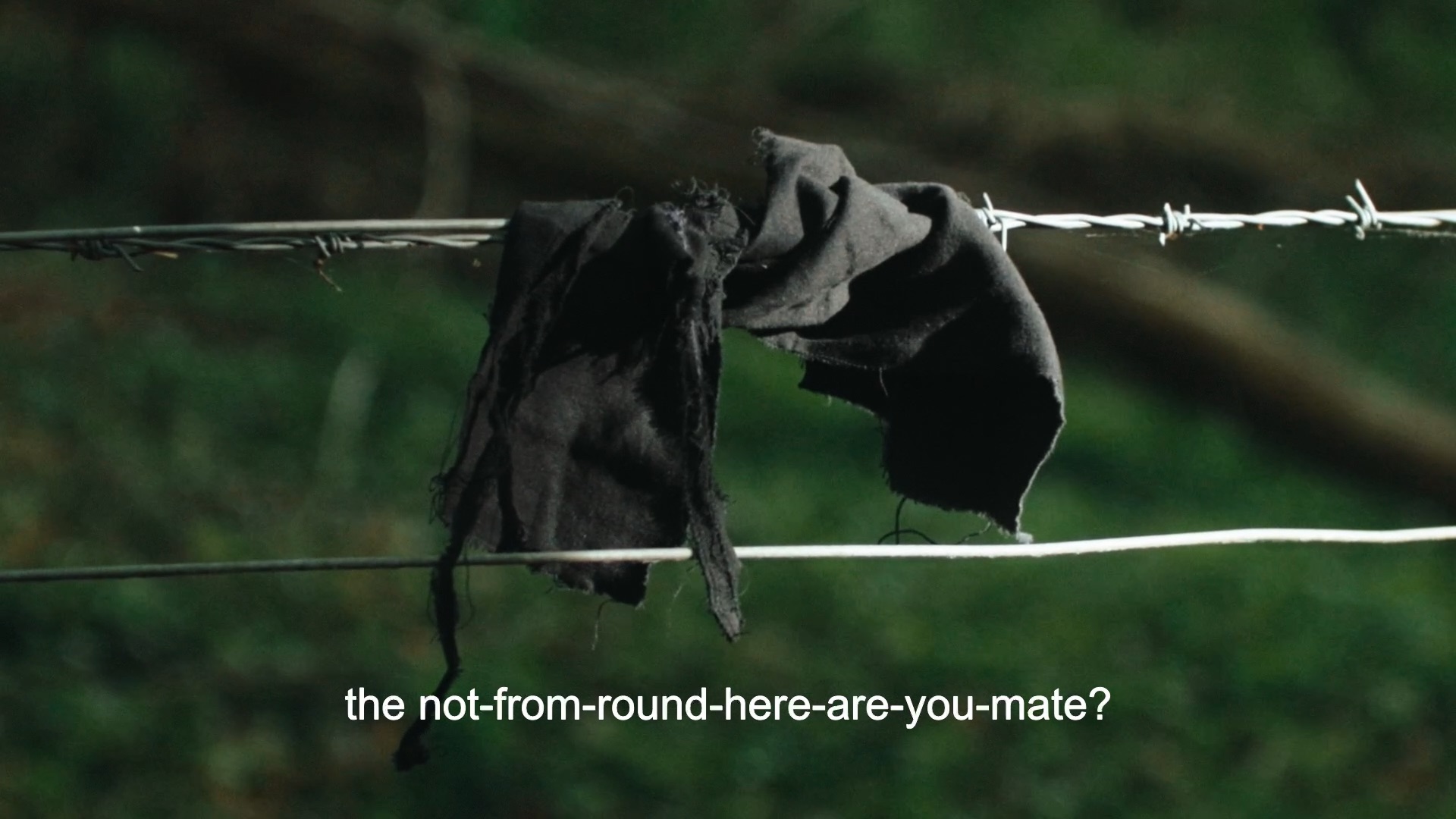 black strangers, Dan Guthrie
black strangers, Dan GuthrieIn black strangers, Dan Guthrie goes for a walk in the woods in search of Daniel, a man buried in Nympsfield on the 31st of December 1719 and described on an archival document as ‘a black stranger’. Whilst walking, Dan talks directly to Daniel, speculating about the parallels between him and his namesake and wrestling aloud with the problems that come with trying to read an archive at face value and fill in its gaps.
Written by local artist Ryan Gilmartin, St. Nowhere looks at rural working class life, exploring the interplay between nature, grief and legacy - all played out on the nearby fens. Seaweed is a 16mm film by Julia Parks that explores the folklore, ecology, and history of seaweed in northern Scotland. Voiced by seaweed harvesters, workers in the alginate factories, environmental activists, archaeologists & seaweed farmers behind the miracle resource. The film includes archive footage, oral histories and contemporary documentary footage of people working with seaweed.
View from Window, 14th May 2023 by Charlie Harrison is part of an ongoing photographic archive of objects, remnants and landscapes collected in South Lincolnshire. Registers of time are collapsed, as still or slow landscapes are documented only as momentary glimpses. As part of the programme of Mascara 33 we will be publishing excerpts from Charlie’s archive.
An intimate film made in collaboration with the filmmaker’s family, Holly Márie Parnell’s Cabbage centralises her brothers' digital and rhythmic writings using eye tracking technology, and her mother’s reflections on a life lived having to prove her son’s humanity. With a backdrop of the vast sea that separates two countries, Cabbage documents the months preceding a move from Canada back home to Ireland - a country they had to leave a decade prior because of austerity driven cuts to disability funding.
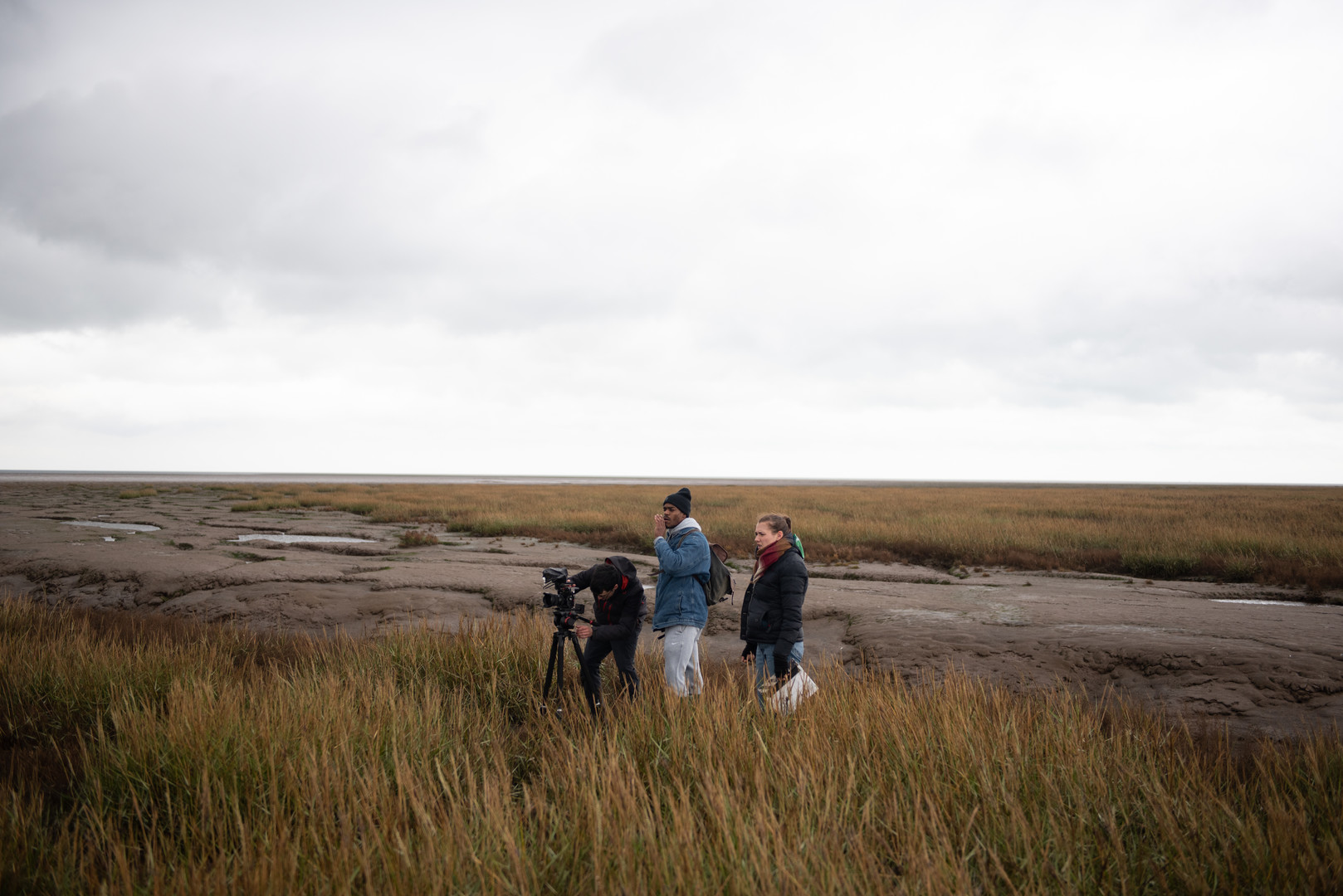
Production still from St. Nowhere, Morgan Bailey & Ryan Gilmartin
––––––––––––––––––––––––––––––––––––––––––––––––––––––––––––––––
#32
Oleksiy Radynski,
Saodat Ismailova,
Oleksandr Dovzhenko
Sunday 10 November 2024, 3:30pm
Location: 97 Sclater St, London E1 6HR
Programme:
Where Russia Ends, Oleksiy Radynski, 2024 (25:11 mins)
The Haunted, Saodat Ismailova, 2017 (22:30 mins)
Земля (eng. The Earth), Oleksandr Dovzhenko, 1930 (78 mins)
Tickets
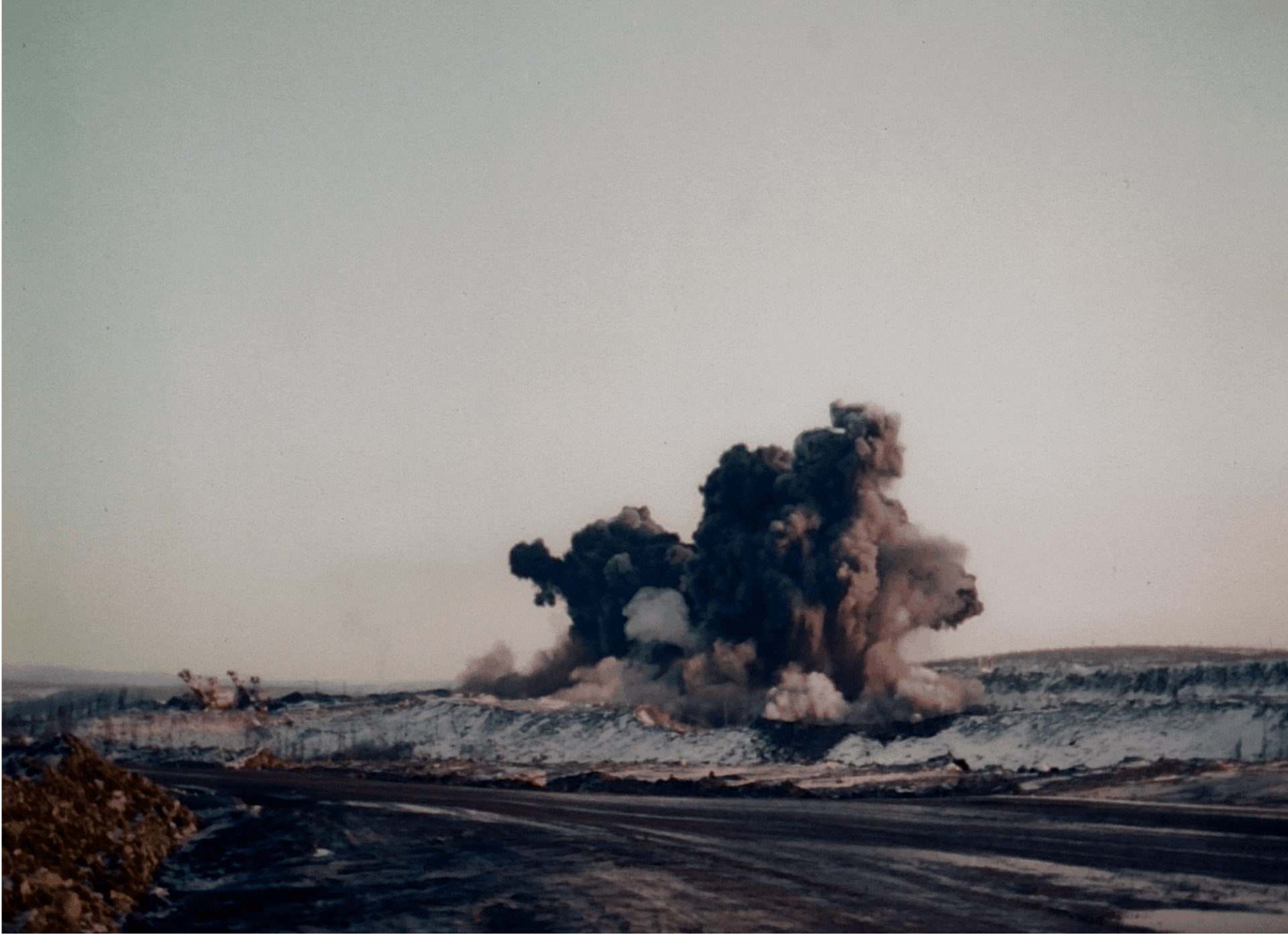
Mascara Film Club presents a group screening that focuses on the broad and enduring historical scope of Russian imperialism. Maintained through turbo-capitalist expansion, throughout its history the Russian state has maintained a colonial logic of violence – evident from the tsarist era, through the years of the Soviet Union and active up until today. The films included in this program engage with themes of annihilation and extraction, analysing Russia’s infrastructural control and erasure of indigenous, religious and cultural practices.
Oleksiy Radynskis’s Where Russia Ends (2024) presents a montage of archival footage originally shot by Ukrainian filmmakers in the late 1980s from a number of film expeditions to remote parts of Siberia. Discovered in the Kyiv Popular Science Film Studios (Kyivnaukfilm) in 2022, the work reconstructs an erased history of Russia’s imperialist wars waged against its subsequent colonies. The film essay focuses on settler-colonial practices of extraction of natural resources, environmental destruction and oppression of indigenous and racialised populations. The work addresses the need for a decolonial reading of Russian Soviet expansionism and its longstanding imperialist ambitions. Where Russia Ends concludes by listing the many native populations that were part of the Soviet Union – Altai, Bashkortostan, Buryatia, Chechen-Ingushetia, Chuvashia, Kalmykia, Karelia, Komi, Mariy El, Northern Ossetia, Sakha-Yakutia, Tatarstan, Tuva, Udmurtia, Yamalo-Nenets Autonomous Region – who declared their state sovereignty after the collapse of the Soviet Union only for it to be subsequently cancelled by the Russian Federation.
Saodat Ismailova’s The Haunted (2017) is a cinematographic and meditative work that looks at the extinction of the Turanian tiger that once inhabited Central Asia. Up to today, this animal has been worshipped and respected as sacred by local populations of the northwestern region of Uzbekistan. Within the film, Ismailova interweaves archival footage with landscape shots, contemplating the loss and annihilation of this spiritual creature, as well as its associated religious and cultural beliefs. As one voice states in the video, “They've been killing you for a long time, I'm sorry I didn't save you. They stole our Paradise, they burned our garden”. Narration and evocative use of sound enframe a mystical rumination that reinscribes the sacred tiger against practices of erasure that started during the tsarist era and continued throughout the Soviet period.
Oleksandr Dovzhenko’s Земля (eng. The Earth) (1930)1, often regarded as the masterpiece of the Soviet avant-garde cinema, is praised for its form, visual style and editing. The film portrays the everyday life of Ukrainian peasants amidst the backdrop of land collectivisation, also known as dekulakization, pursued by the Soviet Union between 1928 and 1933. This policy aimed to transform individual land and labour into collective farms in support of the working class. Although Dvozenko portrays a revolt of poorer peasants against a wealthy landowner this fictionalised narrative has been interpreted as propaganda in support of Ukrainian independence, leading to the film being banned only nine days after its release. The forceful implementation of the policy directly contributed to the Holodomor – a man-made famine during the Stalinist rule – that led to starvation of up to five million Ukrainian peasants. This work captures the colonial understanding of Ukraine as the “breadbasket of Europe”, a nation whose territory contains a quarter of the world's most fertile soil chernozem [“black earth”]. Practices of land dispossession and extractivism reverberate throughout the film, a haunting premonition of Russia’s present-day shelling of Ukrainian farmable land.
––––––––––––––––––––––––––––––––––––––––––––––––––––––––––––––––
1Svitlana Matviyenko notes the historical problems with this direct translation: they suggest 'Land' as being perhaps more accurate, due to the Ukrainian Земля simultaneously encompassing both English understandings of the words 'Earth' and 'Land'.
––––––––––––––––––––––––––––––––––––––––––––––––––––––––––––––––
#31
Emilija Škarnulytė, Lesia Vasylchenko, David Wojnarowicz and Marion Scemama
Thursday 3 October 2024, 7pm
Location: 72 Stamford Hill, London N16 6XS
Programme:
BURIAL, Emilija Škarnulytė, 2022 (60 mins)
Tachyoness, Lesia Vasylchenko, 2022 (8 mins)
When I Put My Hands on Your Body, David Wojnarowicz and Marion Scemama, 1989 (4:29 min)
Tickets

Mascara Film Club presents a group screening exploring the fraught politics of time across fragile worlds, including films by Emilija Škarnulytė, Lesia Vasylchenko, David Wojnarowicz and Marion Scemama.
From the disposal of nuclear toxic waste, through machine learning, to the AIDS pandemic, these films each offer meditations on the (un)making of the present and/or the future within contexts in which the possibility of life is either incomprehensible, uncertain or denied. Shifting between global, personal and geological time frames, the films explore manufacturing of various temporalities and its direct consequences on material realities of those ecosystems.
Emilija Škarnulytė’s BURIAL (2022) opens with shots of the Ignalina Nuclear Power Plant (INPP) in Lithuania, which is currently undergoing a decommissioning process. The film is a cinematographic journey through various locations, cultural practices and political agents grappling with understanding of human and non-human temporalities. The meditative explorations of those timelines is underscored by the decomposition of uranium as a nuclear waste. Questions around who, what and if at all anyone will remain to witness its decay reverberate.
Lesia Vasylchenko’s Tachyoness (2022) features more than a thousand photographs of sunrises over Ukraine constructed into a seamless video sequence using AI technology. The images, collected from archives, advertisements, social media, and home VHS videos, span a historically significant period from the breakup of the Soviet Union in the early 1990s to 2022.
David Wojnarowicz and Marion Scemama’s When I Put My Hands on Your Body (1989) is a raw and tender portrayal of lovers nearing death. Released only three years before Wojnarowicz's premature death, the work foregrounds bodily expressions of lust and desire, boldly refusing the organised abandonment practised by governments during the height of the AIDS pandemic.
Film stills from When I Put My Hands on Your Body: David Wojnarowicz & Marion Scemama, When I Put My Hands on Your Body, 1989, Film still from Super 8 color on digital video, Copyright Estate of David Wojnarowicz and Marion Scemama, Courtesy of Marion Scemama; Estate of David Wojnarowicz; and P·P·O·W, New York
––––––––––––––––––––––––––––––––––––––––––––––––––––––––––––––––
#30
Ed Webb-Ingall, Frank Sweeney
Sunday 2 June 2024, 6pm
Location: Atlas Cinema, Junction, 5 Gastineau Yard, Loughborough SW9 7FA
Programme:
Few Can See, Frank Sweeney, 2024 (42 mins)
We Have Rather Been Invaded, Ed Webb-Ingall, 2017 (40 mins)
Tickets
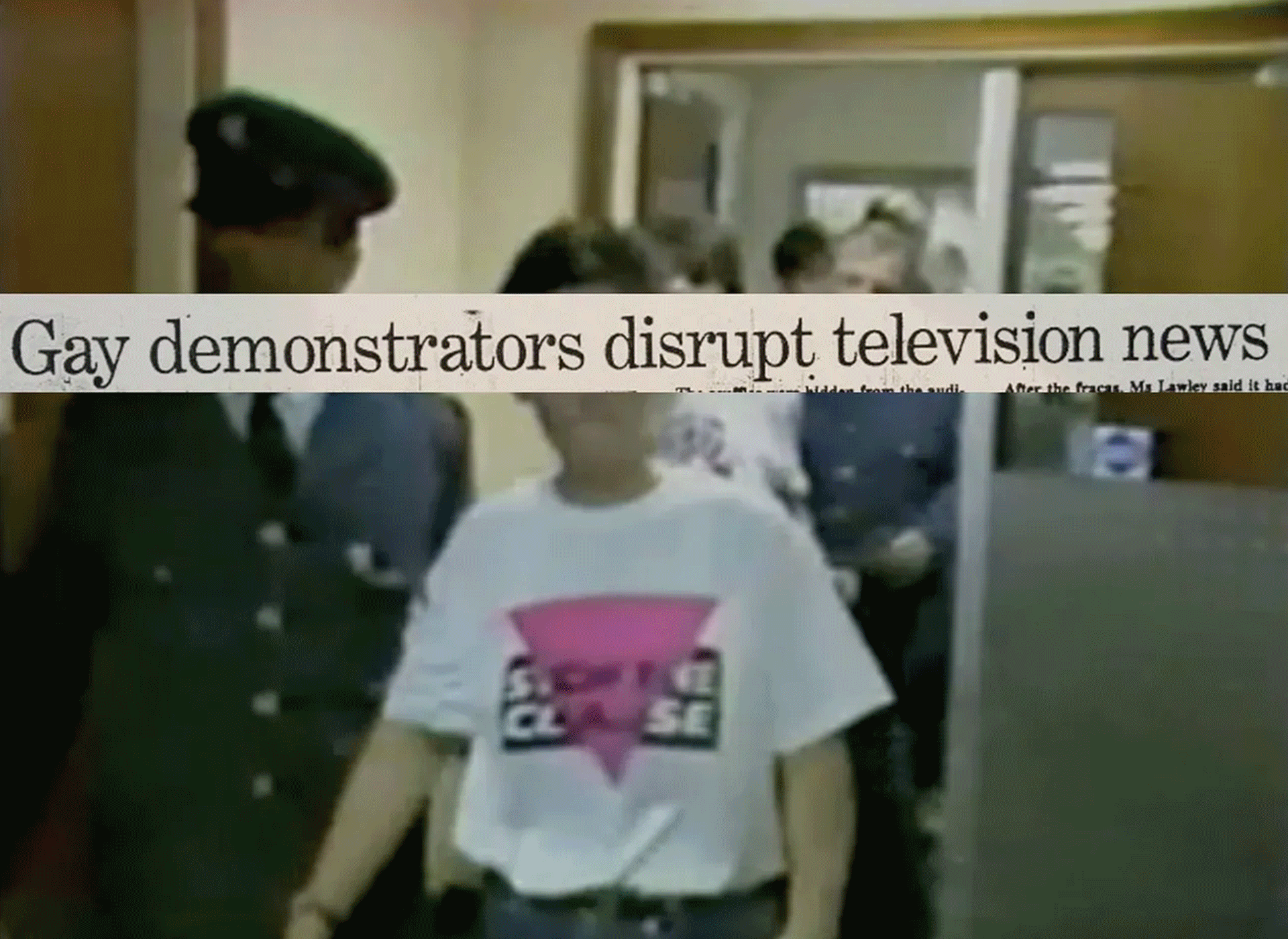
Mascara Film Club presents a double-bill of films by artists Ed Webb-Ingall and Frank Sweeney, both investigating the televisual politics of the 1970/80s and the struggles of community activists within Ireland and Great Britain.
Frank Sweeney’s Few Can See (2024) examines the legacy of broadcast censorship of the conflict in the north of Ireland and political movements during this era. The project attempts to recreate material absent from state archives due to censorship, based on contemporary oral history interviews.
Ed Webb-Ingall’s We Have Rather Been Invaded (2017) explores the legacy of Section 28, a series of laws introduced by Margaret Thatcher that banned the “promotion of homosexuality” by local authorities in the UK. Composed of archival material and roundtable interviews with those affected by the homophobic legislation, this video takes a key moment of protest as its focus – the invasion of a broadcast of the BBC Six O’Clock News by four lesbian protestors on May 23rd 1988, the night before Section 28 became law.
––––––––––––––––––––––––––––––––––––––––––––––––––––––––––––––––
#29
Clémence Lollia Hilaire, John Smith, Ghita Skali, Daisy Smith, Bayley Sweitzer, Adam Khalil & Oba
Sunday 5th May 2024, 7.30pm
Location: Marais Moeras, Av. Van Volxem 380, 1190 Forest, Brussels
Programme:
Nosferasta: First Bite, Adam Khalil, Bayley Sweitzer & Oba, 2021 (30 minutes)
The Eiffel Towers, Ghita Skali, 2013 (12 mins)
The Black Tower, John Smith, 1985-7 (24 mins)
Lily at Home, Daisy Smith, 2023 (4 mins)
Harvest, Clémence Lollia Hilaire, 2023 (15 mins)
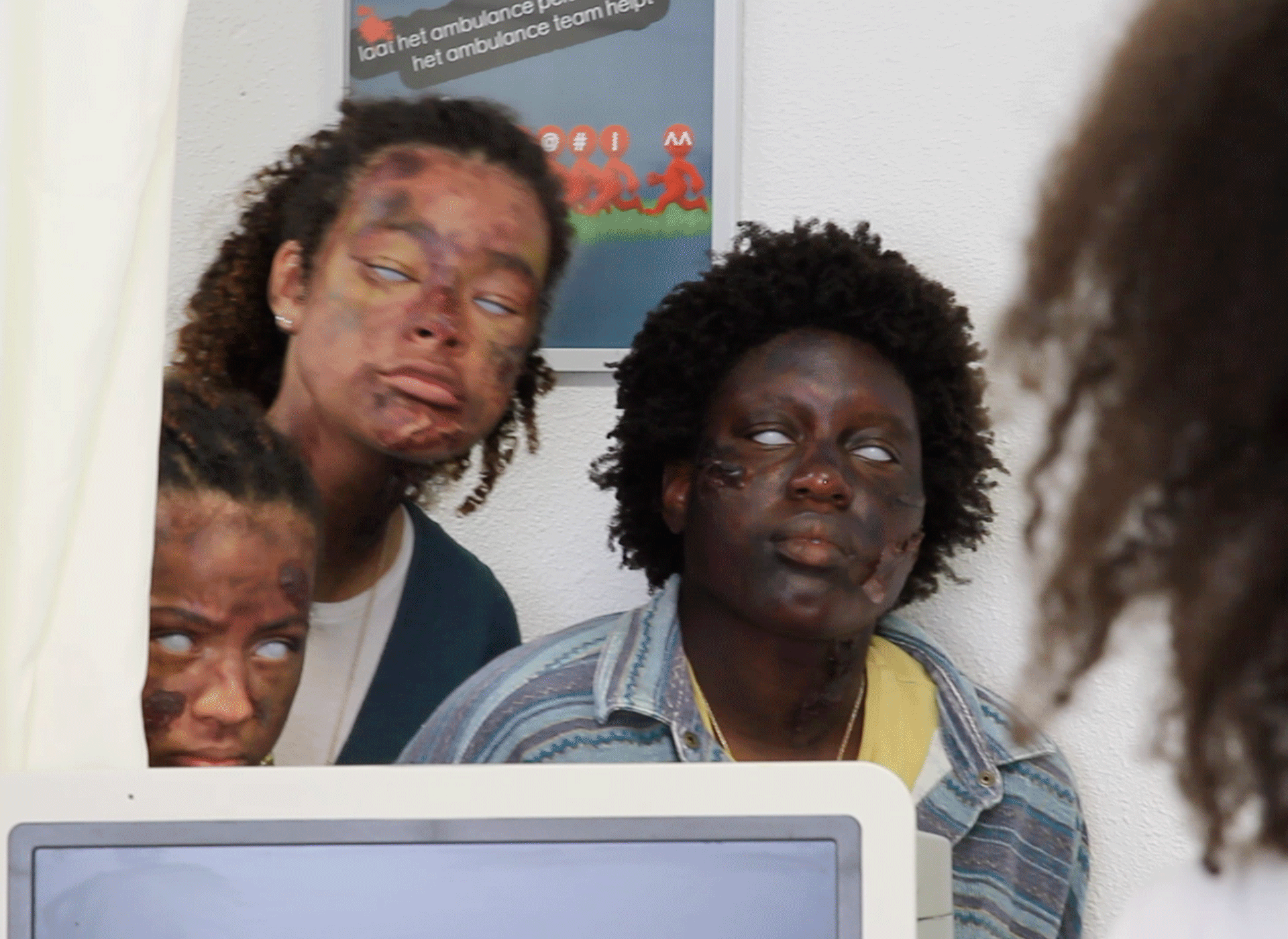
Mascara 29 presents five films that have at their core themes of ownership and control, with portraits of people stuck in the fever dream worlds that result from colonial and capitalist invasions. Screened here amidst the marshland nearby, and with the redevelopment of the building looming, we will sit with vampires, property managers, zombies and city planning officers. Revenge fantasies and cautionary tales abound.
––––––––––––––––––––––––––––––––––––––––––––––––––––––––––––––––
#28
Emily Wardill, Ellie Bird & Harriet Rickard
Saturday 20 April 2024, 6pm
Location: Close-Up Film Centre, 97 Sclater Street,
London E1 6HR
Book tickets here
Programme:
Fine I Shall Tell You a Story, Ellie Bird, 2023 (6 mins)
siblings, Harriet Rickard, 2021 (2 mins)
When You Fall into a Trance, Emily Wardill, 2014 (72 mins)

For the 28th iteration of Mascara Film Club we will focus on imperfect narrators, child's play and the dead-ends of language. When You Fall into a Trance, a feature by Emily Wardill, will be screened alongside Fine I Shall Tell You a Story by Ellie Bird and siblings by Harriet Rickard.
––––––––––––––––––––––––––––––––––––––––––––––––––––––––––––––––
#27
Dina Mimi, Kamal Aljafari
(Palestine Fundraiser Screening)
Saturday 6 April 2024, 7.30pm
Location: Black Tower Projects, Abbey Trading Estate
Bell Green Lane, London SE26 5TW
Book tickets here
Programme:
The Melancholy of this Useless Afternoon Chapter 1, Dina Mimi, 2023 (12 mins)
The Melancholy of this Useless Afternoon Chatper 2, Dina Mimi, 2023 (11 mins)
Recollection, Kamal Aljafari, 2015 (1hr 10 mins)

Two films by Dina Mimi The Melancholy of this Useless Afternoon Chapters 1 and 2 pair revolutionary songs from Oman, Yemen and Palestine with a tired speaker at the end of the phone, her fragmented conversation describing a loss, fugitive movement and thoughts on revolution. Kamal Aljafari’s Recollection is a contemplative unravelling of a violent archive. The Israeli and American features shot in the town of Jaffa from the 60s to the 90s are the basis for the history of a dream. All protagonists are removed from the original footage, leaving an empty setting formed by the town. Examinations of erasure and exposure are recurrent in this fundraiser screening.
Tickets are £5 and we will be accepting donations on the night. Proceeds from ticket sales will go towards this fundraiser. Please consider donating to provide vital support to Lina’s family during an ongoing genocide and violent occupation.
––––––––––––––––––––––––––––––––––––––––––––––––––––––––––––––––
#26:Hannan Jones, Dina Mimi, Onyeka Igwe, Jacob Dwyer, Gabriel Abrantes
Thursday 6th April 2023 7.30pmHannan Jones, Dina Mimi, Onyeka Igwe, Jacob Dwyer, Gabriel Abrantes
Location: P/////AKT, Amsterdam
Programme:
Working Knowledge of Ritual, Hannan Jones, 2023 (4 mins)
The eyes that never see, Dina Mimi, 2021, (12 mins)
We Need New Names, Onyeka Igwe, 2015 (14 mins)
Donovan Garcia, Jacob Dwyer, 2017 (7 mins)
A Brief History of Princess X, Gabriel Abrantes, 2016 (7 mins)
Working Knowledge of Ritual, Hannan Jones, 2023 (4 mins)
The eyes that never see, Dina Mimi, 2021, (12 mins)
We Need New Names, Onyeka Igwe, 2015 (14 mins)
Donovan Garcia, Jacob Dwyer, 2017 (7 mins)
A Brief History of Princess X, Gabriel Abrantes, 2016 (7 mins)

Mascara film club presents a programme that looks at portraits of people that cannot be filmed, whether this be through impossibility or concealment. Fact, fiction and construction play out across five films that propose alternative depictions or awkward documents.
#25:
Uriel Orlow, Lenka Vráblíková and Elspeth Mitchell, Rehana Zaman
Lenka Vráblíková and Elspeth Mitchell, Rehana Zaman
Wednesday 9 November 2022, 7.30pm
Location: MayDay Rooms
︎︎︎TICKETS
Programme:
The Crown Against Mafavuke, Uriel Orlow, 2016 (18 mins)
Out of Office: Mycorrhizal encounters and the art of feminist un/learning, Lenka Vráblíková and Elspeth Mitchell, 2021 (21 minutes)
Alternative Economies, Rehana Zaman, 2021 (28 minutes)
![]()
The Crown Against Mafavuke, Uriel Orlow, 2016 (18 mins)
Out of Office: Mycorrhizal encounters and the art of feminist un/learning, Lenka Vráblíková and Elspeth Mitchell, 2021 (21 minutes)
Alternative Economies, Rehana Zaman, 2021 (28 minutes)

Mascara Film Club presents a group screening of three films by Uriel Orlow, Lenka Vráblíková and Elspeth Mitchell, and Rehana Zaman. Exploring entanglements between knowledge, nature and truth production, these films focus on different and often devalued modes of understanding presented through mediations between plants, fungi and people. Working at the junctures between epistemes, here plants and mushrooms offer opportunities for learning and un/learning across ideologies and cultures.
Tickets can be booked via Eventbrite for free. However, we kindly ask attendees to donate £5 if they can, which goes directly towards paying artist's screening fees. Donations can be made on the door. Mascara Film Club is a volunteer-run artist collective.
#25:
Avril Corroon
Avril Corroon
29 October – 23 November 2022
Online

Mascara Film Club presents an online screening of Avril Corroon’s film Spoiled Spores (2019), free to watch on our website.
Responding to neglected housing conditions in rental property in Ireland and London, Spoiled Spores is a film showcasing cheeses made with a culture of household mould (black mould) sampled from rental accommodation in Dublin and London. Participants were found through Avril's extended network of peers and call outs online - each cheese is named after the individual participant. Adopting aesthetics of commercial food photography, the cheese in Spoiled Spores is stylised with menus outlining its provenance, ingredients, rental fees and mould type.
#24:
Project Artworks
7 – 27 October 2022
Online
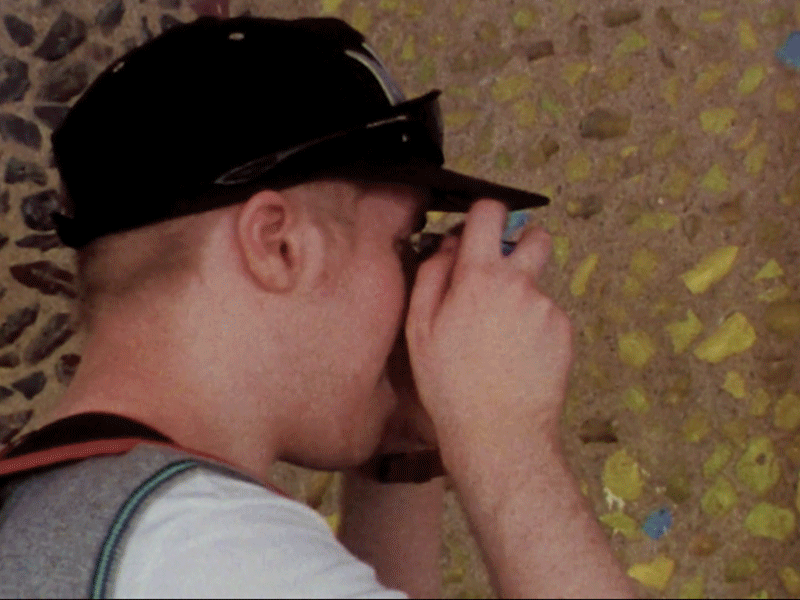
Mascara Film Club presents an online screening of two films by Project Artworks, No Church in the Wild (2015) and Meet me at the Station (2016).
No Church in the Wild is edited from recordings made while in the company of four young men with autism as they travel through the Sussex countryside. The protagonists finally arrive at Ivy Church in Romney, a building which dates back to the 14th century and is one of the last operational churches in England without electricity. The film explores the concepts of congregation and sanctuary through the sensitive and diverse investigations of the open countryside and the church by the four young men. While it reveals the often unconventional and intimate interactions between the participants as they negotiate their journey, the film questions more widely what it means to be a group and to feel safe.
In 2016 Project Art Works conducted several innovative and investigative projects that focused on how people with complex support needs experience built space and other environments. Each survey resulted in beautifully constructed sound and film documents of the experience. This practice aligns with the psychogeographic practice of investigation, the dérive or drift, and refers to unplanned journeys through urban landscapes and the way in which the surrounding architecture and geography subconsciously direct the travellers. Meet me at the Station was one of these surveys. This was a Super 8 film transferred to digital film with sound.
About Project Art Works
Project Art Works collaborates with people with complex support needs, families and circles of support. Our practice intersects art and care, responding to neurodivergence, its gifts and impacts. Challenging paradigms of inclusion, it spans direct practical and holistic support, film, events, projects and exhibitions.
Our studios provide the conditions for a broad range of autonomous and collaborative practices with neurodivergent artists, who take part on their own terms. Alongside the studios, the Support Collective brings together people who care for people with complex support needs where we share our experience and protect our rights through training, resources and advocacy.
Human connection and what it reveals about identity and how we view each other are explored within our work. Our practice continues to respond to the functional and ethical structures of diligence and care, respecting self-determination and privacy whilst working towards greater visibility and understanding of neurodiversity in culture.
Project Art Works is an Arts Council England National Portfolio Organisation. Alongside neurodiverse artists and makers, the collective includes paid and unpaid caregivers who help each other to navigate through the complexities of health and social care systems.
#24:Harilay Rabenjamina, George McGoldrick, George Kuchar, Stephen Sutcliffe, Sam Marshall Lockyer
Harilay Rabenjamina, George McGoldrick, George Kuchar, Stephen Sutcliffe, Sam Marshall Lockyer
Sunday 23rd October 2022 8pm
Location: P/////AKT, Amsterdam
Programme:
Le Nez De Ma Mère Sous Titré/My Mothers’ Nose, Harilay Rabenjamina, 2021 (12 mins)
Paul the Octopus, George McGoldrick, 2018, (1 min)
Creeping Crimson, George Kuchar, 1987 (16 mins)
City of Dreadful Something, Stephen Sutcliffe, 2019 (4 mins)
Scene 4, Take 9, Street Named Psycho politics, Ep1, Se1, Sam Marshall Lockyer, 2022 (17 mins)
Le Nez De Ma Mère Sous Titré/My Mothers’ Nose, Harilay Rabenjamina, 2021 (12 mins)
Paul the Octopus, George McGoldrick, 2018, (1 min)
Creeping Crimson, George Kuchar, 1987 (16 mins)
City of Dreadful Something, Stephen Sutcliffe, 2019 (4 mins)
Scene 4, Take 9, Street Named Psycho politics, Ep1, Se1, Sam Marshall Lockyer, 2022 (17 mins)
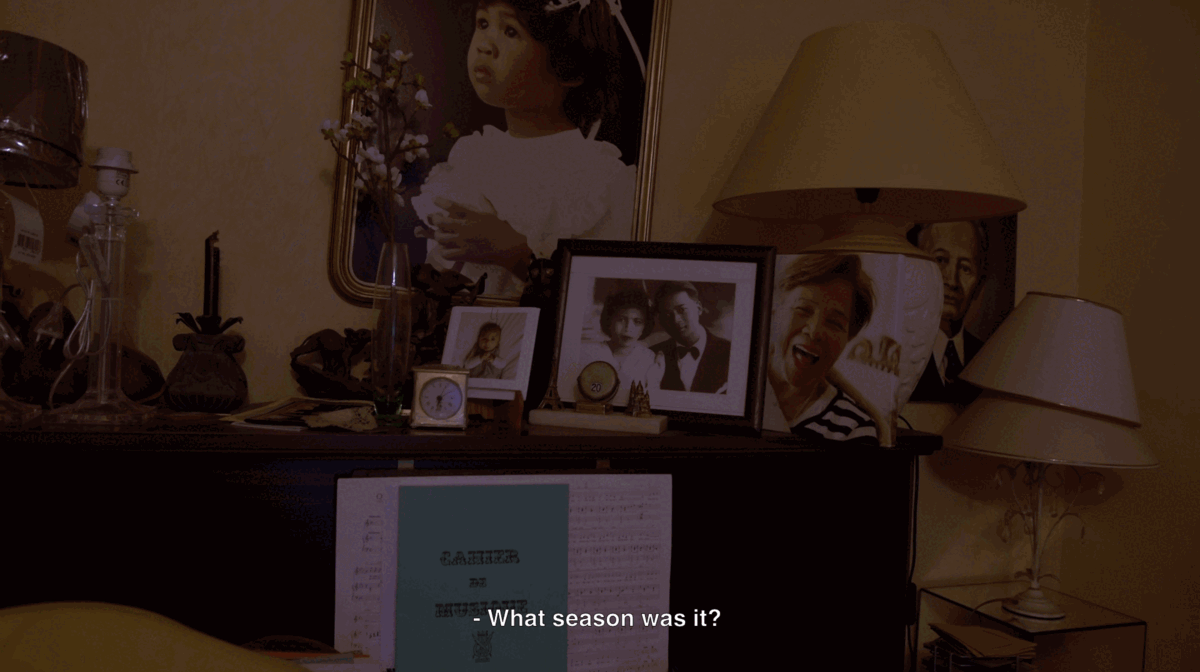
Mascara Film Club is very excited for our first screening in Amsterdam, hosted by P/////AKT. Mascara Film Club #24 presents a group screening of films where family, friends, hometowns and pets become material to be both worked from as well as through. Anchored in autobiography, these videos present complicated political contexts through the lens of intimacy, reminiscence and family tensions. Including a bread delivery route, a dressed-up dog, a reality TV-star and a hospital visit on halloween.
#23:
belit sağ
8 September – 6 October 2022
Online
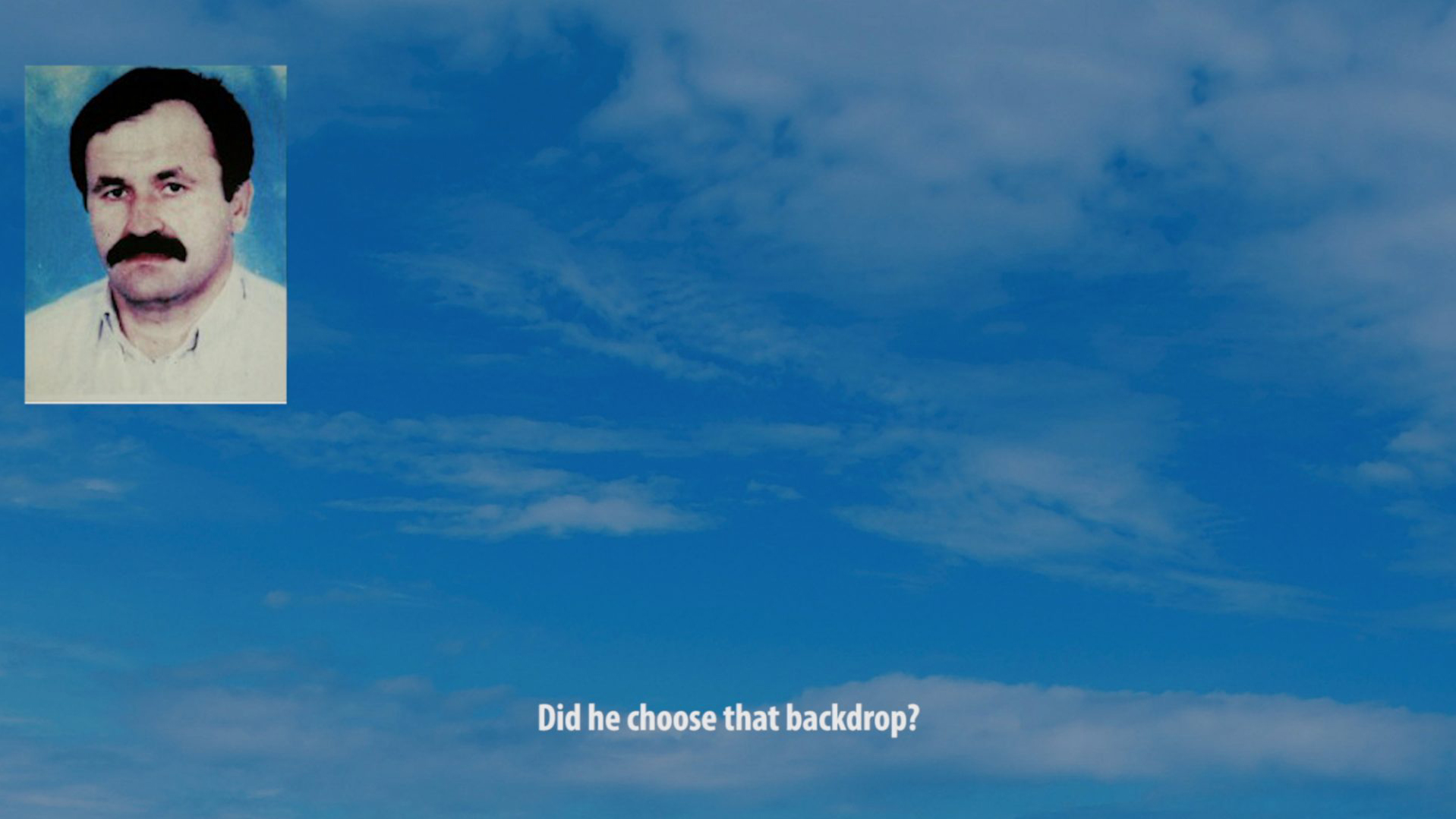
Mascara Film Club is pleased to present an online screening of Cut Out (2018) by belit sağ.
The video brings together police file photos of the Nationalist Socialist Underground’s victims in Germany. Between 2000-2007 this far-right terrorist organisation killed 10 people, 9 of them with a migrant background, mostly Turkish and Kurdish. German government persistently ignored the racist nature of crimes and treated them as isolated assaults. sağ combines portraits of the victims with a voiceover speculating on material details and conditions of the photographs taken.
belit sağ is a videomaker and visual artist living in Amsterdam. She studied mathematics in Ankara and audiovisual arts in Amsterdam. Her video background is rooted in video-activist groups in Ankara and Istanbul, where she co-initiated projects such as karahaber.org (2000-2007) and bak.ma (a growing online audiovisual archive of social movements in Turkey). Her recent video work focuses on ‘the violence of representation’ and ‘representation of violence’. She attended residencies at the Rijksakademie van Beeldende Kunsten, Amsterdam in 2014-2015, and the International Studio and Curatorial Program, New York, in 2016. She has presented her work at museums, galleries, and film festivals worldwide, including MOCA, Taipei; Tütün Deposu, Istanbul; Tabakalera Film Seminar, San Sebastian; Toronto/Rotterdam/San Francisco/New York International Film Fest/International Documentary Film Fest. Amsterdam (IDFA); EYE Filmmuseum, Amsterdam; Documenta14, Kassel; Marabouparken, Stockholm.
#21:
Chris E. Vargas & Eric. A Stanley
Thursday 01 September 2022
Location: Mascara Bar
Programme:
Criminal Queers, Chris E. Vargas & Eric A. Stanley, 2015 (63 mins)
︎︎︎ Tickets: sliding scale: £3–£10
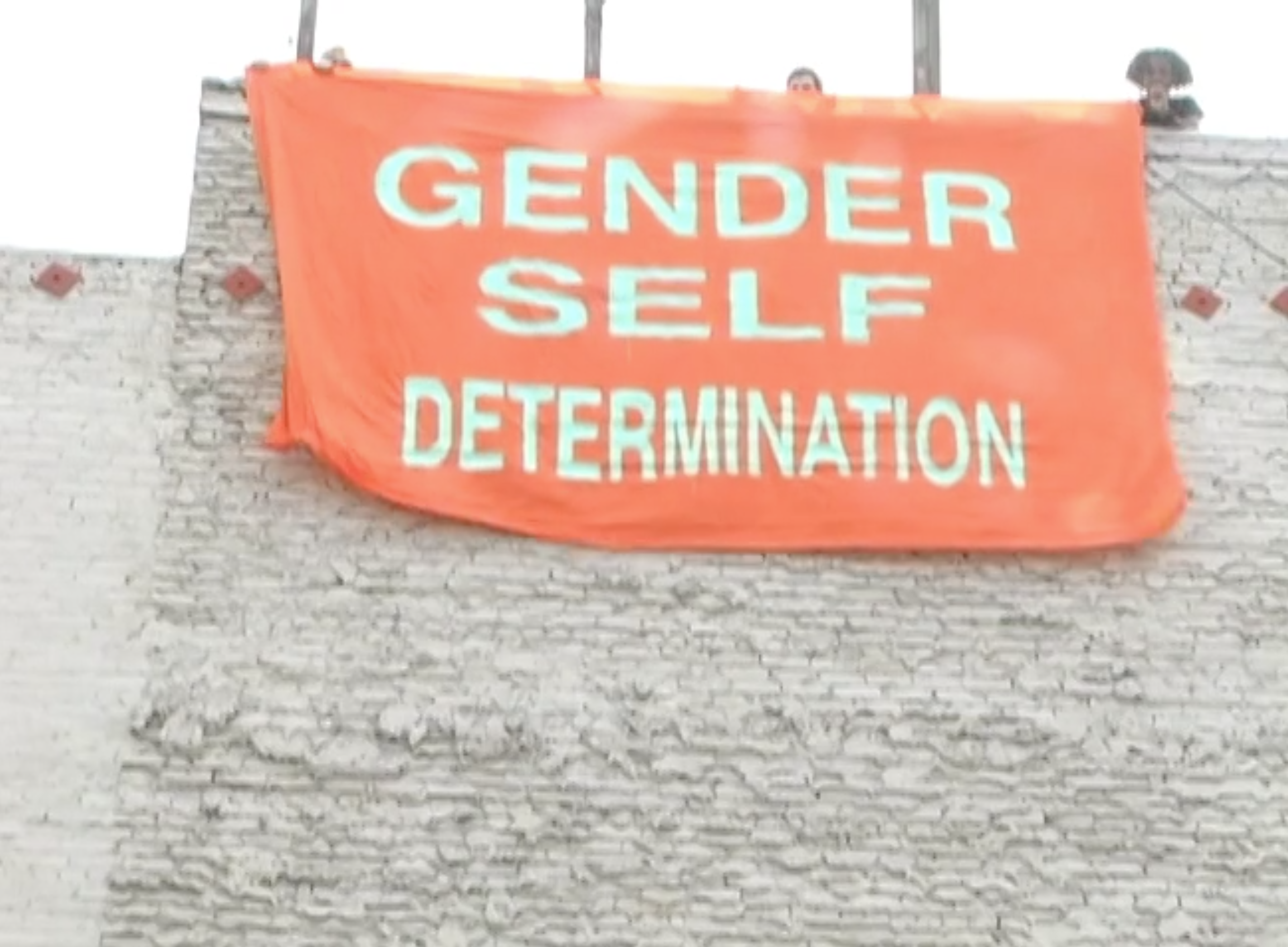
Mascara Film Club is pleased to present a screening of Criminal Queers (2015) by Chris E. Vargas & Eric A. Stanley.
Criminal Queers visualizes a radical trans/queer struggle against the prison industrial complex and toward a world without walls. Remembering that prison breaks are both a theoretical and material practice of freedom, this film imagines what spaces might be opened up if crowbars, wigs, and metal files become tools for transformation. Follow Yoshi, Joy, Susan and Lucy as they fiercely read everything from the Human Rights Campaign and hate crimes legislation to the non-profitization of social movements. Criminal Queers grows our collective liberation by working to abolish the multiple ways our hearts, genders, and desires are confined.